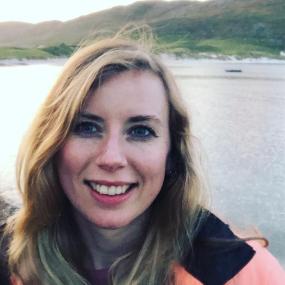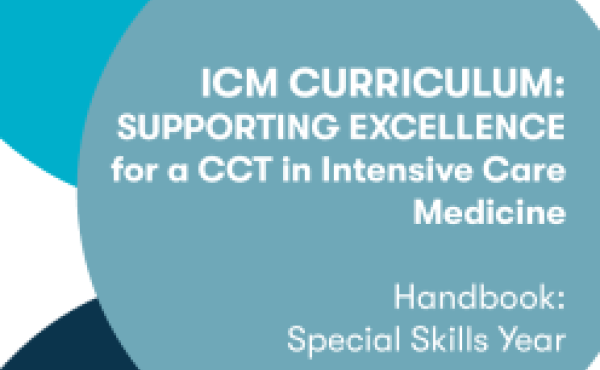The Special Skills Year

Sam is currently a single specialty Intensive Care Medicine trainee in Scotland undertaking a Special Skills Year (SSY) in Education.
What is the SSY?
The Special Skills Year (SSY) is 12 months of training during which you either further your experience in a sub-specialty within ICM, develop another clinical skill or develop a non-clinical competency relevant to practice as an ICM consultant. This is for single specialty ICM trainees who undertake this as a compulsory part of stage 2 training, in place of a year in a partner specialty. The FICM approved list of options is quite an exciting menu with options from ECMO, paediatric ICM to Quality improvement, which can be found on the FICM website. These are all designed to develop skillsets which contribute to good patient care and are mapped to the “GMC Good Medical Practice Guideline”.
Why Education?
For me, although I did look through the list it was always going to be education. Even as a child I was always acting as a “teaching assistant” whether it was at dance class or horse-riding. I had the time of my life as a junior clinical teaching fellow and enjoyed the PgCert in medical education. The satisfaction of seeing students develop or having my knowledge challenged by them is fantastic. In terms of future job plans I think a role within medical education could be the perfect balance with ICM, providing a non-clinical role with a different set of challenges and no night shifts! This also feels like a skillset every department needs and underpins good patient care.
What does it involve?
FICM set a list of curriculum items for each SSY akin to the ICM curriculum. For education the objectives are aligned with the GMC supervisor framework. These involve demonstrating delivery of teaching to a variety of learners, use of assessment tools and feedback and organising educational activities.
I approached the year by finding a supervisor who is someone I would like to have a career like/ be like. I was fortunate to know a consultant with a wealth of experience in medical education, who was also friendly and a fabulous role model. Having had multiple roles in medical education, including director of medical education- they seemed the perfect person to guide me. After that I had a think about what I wanted to achieve. Ultimately, I want to know more about education roles for the future- within postgraduate medical education, university and FICM. After that I wanted to develop my teaching skills further by challenging myself to use different modalities and participate in a variety of courses where I could get feedback. This plan required approval by my training programme director and regional advisor, who had to be satisfied this would meet the required learning outcomes and could be delivered locally.
Protected time is available for this, in addition to maintaining a 50% time commitment to ICM rota.
In terms of assessment FICM has created a competency-based portfolio with domains which can be assessed by the same modalities as the ICM curriculum- DOPS, CBD, etc. Evidence of an educational portfolio is required, with certificates, reflection, and feedback.
What have I done so far?
I have been fortunate in that I have got involved in a wide range of projects. This came about by researching what was happening locally and putting myself forward, in addition to coming up with ideas and asking around for help.
The Bridges Programme has given me the opportunity to work with a charity and organise a teaching programme for doctors seeking refuge in Scotland to get GMC registration, this has been really enjoyable and challenged me in delivering an educational programme to a group of doctors ranging from newly qualified to experienced consultants. I have set up and developed an ICM bootcamp aimed at doctors undertaking their first job within ICM. Locally we have established a departmental simulation programme, with good feedback. I am a course tutor on a critical care masters and helped to update a module of this. Furthermore, I have been a faculty member on several bootcamps aimed at Internal Medical Trainees.
What are the benefits?
Unexpected benefits have been discovering that I enjoyed being involved in aspects of education which I didn’t know I would- namely simulation. Making connections with other people involved and interested in medical education has been fantastic- this has led to my involvement in other projects as well as developing a network of people I can ask for advice and hassle to be teaching faculty! One anxiety I had prior to this year was being out of the MDT and perhaps working in education being more isolated. This has been far from the truth - in an average week I meet at least 3 different groups of colleagues from all backgrounds, in different environments.
Regarding my wider development I have been forced to seek opportunities for myself, ask for things and ask for help which is not always comfortable but will stand me in good stead for the future. Time management has been challenged by balancing education on top of clinical work and accepting the to do list is never complete for long!
Any negatives?
I was surprised by how much I missed clinical time and how quickly I felt slightly de-skilled. Although I did maintain the required 50% clinical commitment, I didn’t often have many ICU shifts in a row, therefore didn’t feel I knew patients as well as I would normally which was a challenge. There were some of my ideas that didn’t go anywhere- setbacks after investing time planning, but learning to be had in why these didn’t work.
In summary I entered my SSY with a keen interest in education and experience of delivering teaching. I will leave it with teaching skills further refined, experience in leadership related to education and well connected, feeling like a part of the medical education community. I have a greater sense of direction in terms of which roles I could see myself applying for in the future. I don’t believe I could have obtained this breadth of experience at this stage of my career without undertaking this SSY and I would thoroughly recommend.

